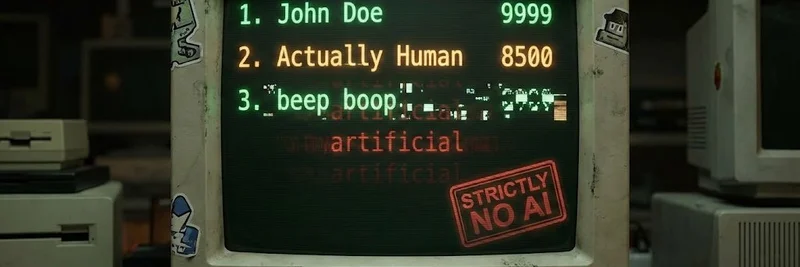Hey folks, if you're deep into the crypto world, especially the wild ride that is meme tokens, you've probably seen the alarming tweet from BSCN Headlines today. They dropped the news that blockchain security firm PeckShield has tallied up 16 major crypto hacks in August 2025, with a whopping $163 million vanishing into thin air. That's a 15% jump from July's $142 million losses. As someone who's been covering crypto for years, first at CoinDesk and now here at Meme Insider, this kind of report always hits hard—especially when it touches on the meme token ecosystem we love to dissect.
Let's break it down simply. PeckShield, a top-tier blockchain security company, monitors exploits across various chains and platforms. Their monthly wrap-ups are like a reality check for the industry, highlighting where vulnerabilities are being pounced on by bad actors. This August's figures show that hacks aren't slowing down; if anything, they're getting more sophisticated and costly.
Key Highlights from the PeckShield Report
According to PeckShield's alert on X, the total losses hit $163.22 million across those 16 incidents. Interestingly, the top five hacks accounted for nearly 99% of the stolen funds—about $161 million—leaving the remaining 11 smaller exploits to scrap over just $2 million. Here's a rundown of the biggest ones:
Anonymous Bitcoin Holder(s): $91.4 million lost. This appears to be a massive theft from multiple BTC addresses, likely due to compromised private keys or phishing attacks. It's a stark reminder that even holding blue-chip crypto like Bitcoin isn't foolproof if your security isn't ironclad.
BtcTurk: $54 million drained. The Turkish crypto exchange suffered its second major breach in over a year, following a $54 million hit in June 2024. Unauthorized access led to frozen wallets and ongoing investigations. Exchanges remain prime targets because they hold vast amounts of user funds.
ODIN.FUN: $7 million exploited. Now, this one hits close to home for meme token fans. ODIN.FUN is a Bitcoin-based meme coin launchpad and marketplace, essentially the Bitcoin version of Solana's Pump.fun. It allows quick trading of tokens on the Bitcoin network using Runes protocol. The hack involved a sophisticated price manipulation exploit, underscoring how launchpads—hotbeds for new meme tokens—can be weak links if not audited thoroughly.
BetterBank.io: $5 million stolen. This decentralized lending protocol on PulseChain fell victim to a rewards exploit involving unauthorized bonus minting and liquidity manipulation. PulseChain, a fork of Ethereum, has its share of DeFi projects, and this hack highlights smart contract vulnerabilities that can lead to inflated rewards being siphoned off.
CrediX Finance: $4.5 million gone. A lending protocol on the Sonic blockchain, this incident smells like an exit scam. The team deleted their X account shortly after the breach, which involved draining funds just weeks after launch. Exit scams are all too common in DeFi, where anonymous teams can rug pull investors without much repercussion.
These exploits span various attack vectors: from private key compromises and unauthorized access to smart contract bugs and price manipulations. For more details, check out coverage from U.Today or Coinpedia.
Why This Matters for Meme Token Enthusiasts
At Meme Insider, we're all about meme tokens—the fun, viral side of crypto that can turn small investments into moonshots (or dust, let's be real). But reports like this are a wake-up call. Platforms like ODIN.FUN are designed to make launching and trading meme coins lightning-fast on Bitcoin, leveraging Runes for that permissionless vibe. However, speed often comes at the cost of security. Price manipulation exploits, as seen here, can artificially pump or dump token values, leaving retail investors holding the bag.
Meme tokens thrive on hype and community, but they're also magnets for scammers. Many are launched without proper audits, and chains like Bitcoin (via Runes), Solana, or BSC see a ton of activity in this space. The BtcTurk hack, while on an exchange, could indirectly affect meme token liquidity if users pull funds. And with annual losses potentially heading toward $4 billion as per some analysts, it's clear the industry needs to step up.
Tips to Stay Safe in the Meme Token Game
Don't let this scare you off—crypto's resilience is part of its charm. Here are some straightforward ways to protect yourself:
Audit Check: Before jumping into a new meme token or platform, verify if it's been audited by reputable firms like PeckShield itself or others.
Wallet Security: Use hardware wallets for large holdings, enable 2FA everywhere, and beware of phishing links. That $91.4 million BTC theft? Probably started with a fake email or site.
Diversify and DYOR: Spread your bets, and always do your own research. Follow reliable sources like BSCN Headlines for quick updates.
Community Vigilance: Join token communities on Discord or X, but watch for red flags like anonymous devs or sudden hype without substance.
As we roll into September, keep an eye on how these hacks influence market sentiment. Bitcoin dipped slightly post-report, but the meme token sector often bounces back with even more creativity. Stay tuned to Meme Insider for more breakdowns on how tech news like this shapes the meme coin landscape. What's your take—will this spur better security in meme launchpads? Drop a comment below!


